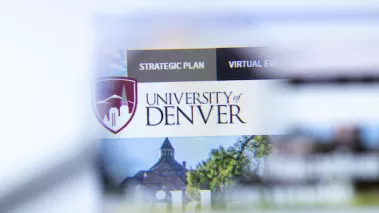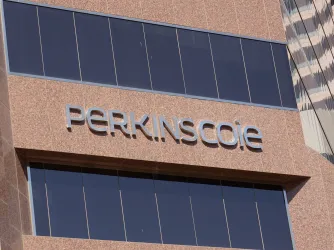Table of Contents
In major victory, Colorado court finds that accused students at private universities are entitled to fair hearings

The Colorado Court of Appeals determined that University of Denver “had a duty to adopt fair procedures and to implement those procedures with reasonable care." (Postmodern Studio / Shutterstock.com)
Last month, Colorado’s intermediate court held that private universities in the state owe a duty of care to students when addressing claims of sexual misconduct. The Colorado Court of Appeals’ ruling, reversing a lower court’s judgment in favor of the University of Denver, a private university, is a welcome decision that other state courts should follow.
Highlighting DU’s deficient process, the court noted “the burden and detriment of an unfair investigation and adjudication is borne almost entirely” by the accused. As a result, the court held that DU has a duty to adopt and apply fair procedures when investigating and adjudicating claims of sexual misconduct.
This is important because a constitutional right to due process only applies at public institutions because they are state actors.
The investigation and DU’s breach of contract
The plaintiff, known by the pseudonym John Doe, was expelled for sexual misconduct after proceedings that he alleged were blighted by bias. After a brief relationship, John and his accuser, known as Jane Doe, had a sexual encounter. Each disputes the sequence of events, alleging that the other initiated sexual intercourse. Some time later, Jane filed a complaint with DU’s Office of Equal Opportunity. The investigators’ final report concluded that it was “more likely than not” that John had engaged in non-consensual sexual contact with Jane, and he was, consequently, dismissed from DU.
Following his expulsion, John filed two lawsuits. In federal court, John alleged, among other claims, that DU and its agents had violated his rights under Title IX. He also filed in state court, alleging breach of contract, breach of the covenant of good faith and fair dealing, and negligence.
Notably, in June 2021, the U.S. Court of Appeals for the Tenth Circuit issued what has been referred to as a “pathbreaking opinion,” identifying several deficiencies in DU’s investigation of John that could be seen as evidence of gender discrimination central to his Title IX claim.
Too many universities around the country maintain procedures that lack even the most fundamental protections.
The Colorado Court of Appeals looked at those same alleged deficiencies and in Judge Michael Berger’s landmark opinion, the court found the Tenth Circuit’s analysis of DU’s investigation persuasive, concluding that these deficiencies also supported John’s state law claims. Judge Berger’s opinion held that DU’s equal opportunity procedures were enforceable under Colorado contract law, determining that the procedures’ commitment to providing a “thorough, impartial and fair” investigation, viewed in the context of the entire document, was “sufficiently definite to determine whether the contractual terms have been performed or breached.”
In detailing ways that DU’s investigation fell short, Judge Berger cited a provision of the school’s procedures guaranteeing that all parties would have “an equal opportunity to be heard, to submit information, and to identify witnesses who may have relevant information.” Yet investigators interviewed eleven witnesses identified by Jane but just one of the five identified by John, which “might allow a fact finder to conclude that DU breached its contractual promise of a ‘thorough, impartial and fair’ investigation.”
The Colorado Court of Appeals has made clear that students are not deprived of their fundamental rights when they enroll at a private campus.
Judge Berger echoed the Tenth Circuit’s opinion once more when he found it troubling that DU’s investigators failed to consider Jane’s possible improper motive for filing the complaint against John in the first place, noting that Jane admitted to investigators that she only filed the complaint after she learned John had allegedly told other classmates about the sexual encounter. Further, Jane submitted an incomplete version of her sexual assault nurse examination report to investigators, with several key portions left out. Yet the investigators concluded that the portion of the report Jane had submitted was sufficient to corroborate her version of events.
While the court did not identify specific procedures that are needed for an investigation to be “thorough, impartial and fair,” it did find that such a commitment, coupled with the requirements DU itself prescribed, constituted an enforceable contract that DU is compelled to follow, and that it failed to do so in John’s case.
Colorado law recognizes a tort duty of care owed by DU
Significantly, and separately from DU’s contractual obligations, the Colorado Court of Appeals also held that Colorado law recognizes a tort duty of care owed by DU to “adopt fair procedures and to implement those procedures with reasonable care” in the course of investigating and adjudicating allegations of sexual misconduct.
In Colorado, determining whether a duty should be recognized requires assessing:
- the risk involved in the defendant’s conduct;
- the foreseeability and likelihood of injury weighed against the social utility of the defendant’s conduct;
- the magnitude of the burden of guarding against the injury; and
- the consequences of placing the burden on the defendant.
Determining that these factors favored John and that DU owed him a duty of care, the court considered the stakes present when a university is investigating and adjudicating claims of sexual misconduct. The court noted that there are “substantial risks to both the alleged victim and the accused” when they are faced with an unfair investigation and adjudication. However, as Judge Berger’s opinion notes, “A determination that a person engaged in non-consensual sexual contact can potentially destroy the accused’s educational, employment, and other future prospects.”
Indeed, DU’s equal opportunity procedures themselves make clear that when these determinations are made, they typically result in dismissal from the university.
“We are hard pressed to find another activity by a private educational institution that can be so devastating and long-lasting in the life of a student,” the court stated.
Further addressing the consequences of sexual misconduct investigations, the court noted (with emphasis added):
When a university adjudicates allegations of non-consensual sexual contact, the consequences of that determination rest almost entirely on the student found responsible. We acknowledge that the purpose of the investigation can also be for the benefit of either DU or Jane (or both). But the burden and detriment of an unfair investigation and adjudication is borne almost entirely by John.
Weighing the relevant factors, the court determined that DU “had a duty to adopt fair procedures and to implement those procedures with reasonable care in the investigation and adjudication of allegations that John committed non-consensual sexual contact.”
This case represents a win for students’ rights and is a particularly significant decision for students at private universities.
The court recognized the burden placed on DU if required to expend the time and resources to ensure that its investigations and adjudications are fair and impartial. Nonetheless, the burden of an unfair process is placed squarely on John, and DU is the only party able to ensure a fair process. Interestingly, the court also noted that DU itself has a significant interest in maintaining a fair process that reaches reliable results. Ultimately, the court found that the burden on DU does not outweigh the severe risk of harm to John that is inherent in the maintenance of an unfair process.
DU is not alone in failing to provide students with a fair process. As FIRE’s annual Spotlight on Due Process report makes clear, too many universities around the country maintain procedures that lack even the most fundamental protections.
This case represents a win for students’ rights and is a particularly significant decision for students at private universities. By recognizing that DU and other Colorado private educational institutions have a duty to adopt and implement fair procedures in cases of alleged sexual misconduct, the Colorado Court of Appeals has made clear that students are not deprived of their fundamental rights when they enroll at a private campus.
FIRE will keep you posted on any new developments in this case.
Recent Articles
FIRE’s award-winning Newsdesk covers the free speech news you need to stay informed.

Harvard’s resistance to Trump is a model for US universities

Sixty-one media organizations and press freedom advocates contest Perkins Coie executive order — First Amendment News 466

Harvard stands firm, rejects Trump administration’s unconstitutional demands
